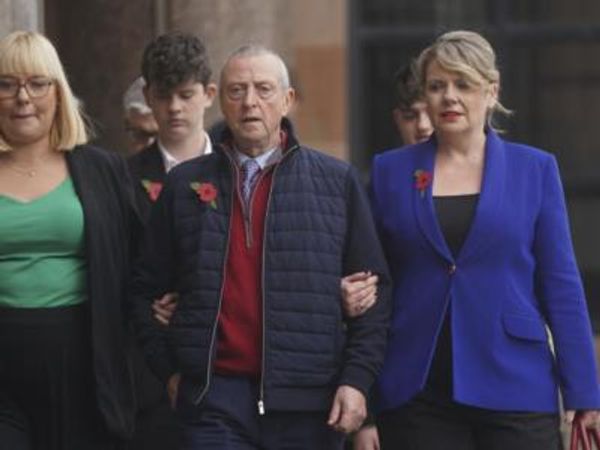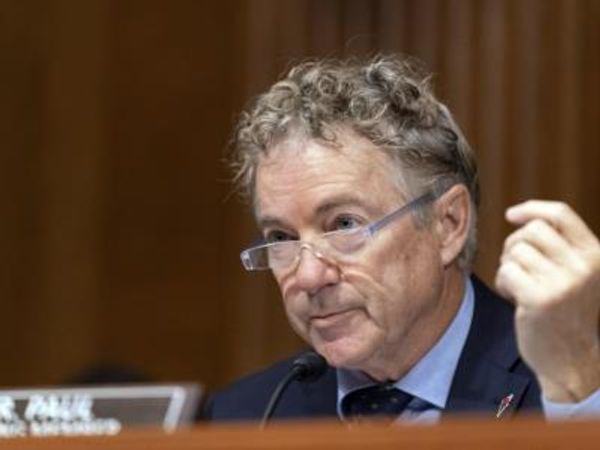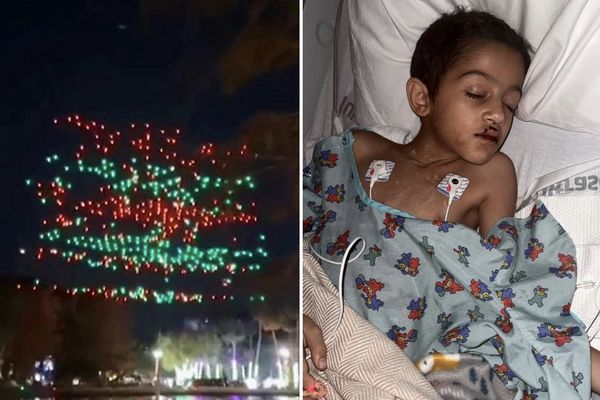
Candidates campaigning for a NSW seat as large as Germany have put tens of thousands of kilometres behind them trying to woo voters ahead of Saturday’s election.
Barwon’s National Party candidate Annette Turner has logged up to 15,000 kilometres since September, while the Labor candidate Joshua Roberts-Garnsey has travelled nearly 5000 kilometres. Incumbent MP Roy Butler said his car was a year old and had carried him 60,000 kilometres, including 10,000 in the past two months.
“It’s not a challenge to me. I’ve spent my life travelling,” Turner told Crikey in an interview outside a pre-poll station in Broken Hill.
“I just love travelling around and meeting people. It gives me energy.”
She said her upbringing in the Broken Hill area means she’s used to travelling “600 kilometres for a haircut or to get groceries”.
Butler joined Turner outside the prepoll station on Thursday, rolling in with a car splashed with mud after riding on the dirt road from Ivanhoe via Menindee.
He said the vast distances were one of the biggest challenges in campaigning.
“It’s a massive place to get around, and you can easily spend 25 hours a week just driving,” he said.
Barwon stretches from Narrabri in the east to Broken Hill in the far west. The Queensland and South Australian borders make up the northern and western perimeters of the 356,000-square-kilometre seat.
It’s traditionally been Nationals territory — and the overlapping federal electorate of Parkes still is — but since 2019 Barwon has been held by Butler, a former Shooters, Fishers and Farmers Party MP who ditched the party to sit as an independent late last year.
Among the rival candidates he’s fending off is Paul Britton, a challenger from his former party, though the Shooters candidate might not end up posing much of a threat.
Britton lives in Sydney, did not have any volunteers or signage in Broken Hill, and did not answer any of the multiple emails his party received from Crikey this week.
A betting firm had the odds of Butler winning at 1.25 with two days to go before the poll, while Turner’s were at 3.75. A Shooters victory would give 10 times the payout, Labor 21 and the Greens 51.
Despite the long odds, Labor’s Narrabri-based candidate Roberts-Garnsey said he believed the party could flip the seat.
“Butler is a popular member, and it’s a traditional Nats seat, but I think people are ready for a fresh start,” Roberts-Garnsey told Crikey in a phone interview.
“If not this election, then definitely the next one.”
When asked by Crikey what issues matter most to them, voters mentioned things like education and health care access — including teacher and nurse shortages — as well as water management.
A pair of teachers, who did not want to be named, said they voted for Butler because he’s “always on the road” and appears to care about the electorate, although they would have voted Labor if they thought the party had a chance to win the seat.
“We voted Labor in the upper house because they’re better on health care and education. The Nationals have a bad name out here. People really went off the Nats during the drought,” one of them said.
Souvenir-shop keeper Ray Steer, 73, said he would vote Nationals because he didn’t trust independents.
“Independents have got to do deals to get something. You’ve got to vote for something someone else wants,” he said.
Store worker Codie Williams, 26, voted for Butler but said it felt like it didn’t matter who he chose.
“It’s pointless out here. We’re such a large electoral area. They’ve got too many places to worry about,” he said.
“But Labor and Liberal are basically the same nowadays, so you’re better off to vote independent to get your voice heard.”
Stuart Kavanagh, reporter at local paper Barrier Truth, said a lack of access to health services seemed to resonate most with voters.
“It’s something you take for granted when you live in a heavily populated area, but here there is a three-month waiting list just to visit a GP,” he said.
Turner mentioned access to healthcare as one of the common themes in conversations with voters on the road, along with a lack of telecommunication services, road maintenance and small business support.
Roberts-Garnsey said equitable access to water, education, health and housing had come up the most during his campaign.
When asked what the most important issues for his voters appeared to be, Butler responded: “There’ are 150 different communities and everyone has got different issues.”
He went on to mention “health, education, roads” as the top issues, along with the rising cost of living.
“Implementation of the 44 recommendations from the regional health inquiry should be non-negotiable … [Also] we’ve got a massive problem with a shortage of teachers, and we’ve got a lot to do to lift the education outcomes to a point of equity,” he said.







